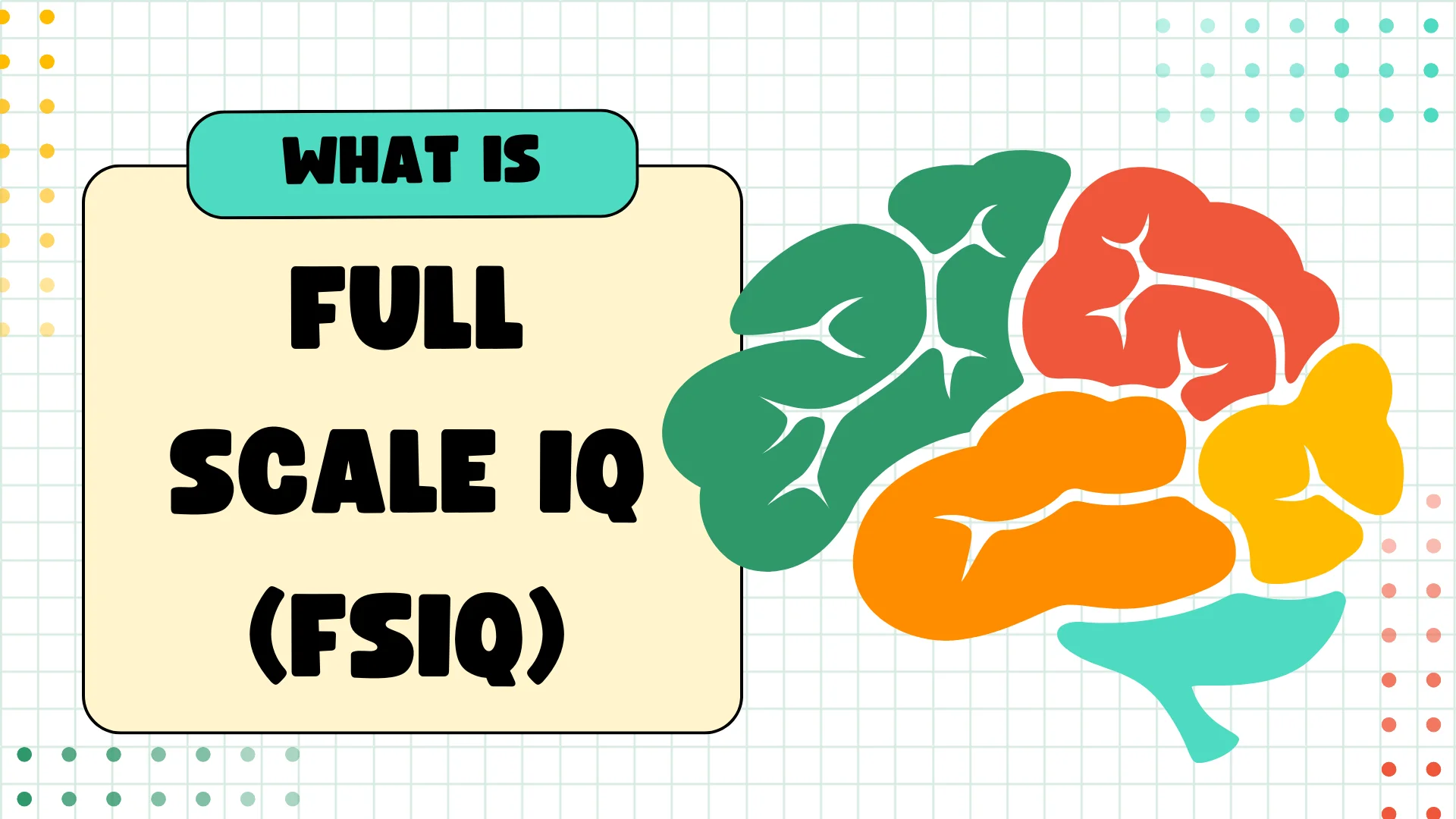What is Full-Scale IQ? | FSIQ Score Meaning
When you calculate an average score of individuals’ complete cognitive capacity by using multiple sub-tests from the Wechsler Intelligence Scale, the result is then termed full-scale IQ.
It is basically a summary and an average score obtained from sub-tests that selectively measure verbal reasoning, fluid reasoning, acquired knowledge, spatial processing, and visual motor skills.
The guide here covers the details about full-scale IQ, what it is, and the meaning of the obtained scores. We will also look at the details of the sub-tests so you can have an idea of what is usually measured during IQ tests done using WISC. Let’s put some light on full-scale IQ and its relevant content.
Full-scale IQ
Wechsler Intelligence Scale is basically a group of tests that has multiple test batteries in it. The sub-tests that WISC carries are some of the most widely used and highly reliable tests conducted to assess the general cognitive abilities and intellectual capabilities of an individual.
When you conduct the test for adults, you must use the Wechsler Adult Intelligence Scale WAIS if testing for individuals aged 16 years above. When you have to conduct examinations for children between 2 and 7 years, you must go with the Wechsler Preschool and Primary Scale of Intelligence, the WPPSI.
Similarly, when you have to test children who are between the ages of 6 and 16 years, you have to use the Wechsler Intelligence Scale for Children WISC. Now, we will look at what are the five index scales that are joined and averaged together to give you the full-scale IQ score.
Index Scales For Full-scale IQ Scores
Here is a description of five index scales that are used to measure full-scale IQ scores. The details here describe the abilities of these five index scale measures. We are going to discuss,
- Verbal Reasoning
- Visual-Spatial
- Fluid reasoning
- Working memory
- Processing speed
Verbal Reasoning
The test measures the knowledge of words a particular individual has and how able an individual is to use them and apply them. It mainly focuses on testing the verbal concept, formation, expression, and reasoning of an individual.
Visual-Spatial
This index scale measures how an individual sees visual details and understands the spatial relationship and construction ability. It also assesses the individual’s ability to understand and conceptualize the relationship between parts and parts as a whole. Moreover, it also measures the individual’s ability to integrate visual and motor skills.
Fluid Reasoning
This part of the test basically assesses the individual’s ability to see the relationship between visual objects and how the knowledge of visual objects is applied using the concept obtained.
Working Memory
Working memory is assessed by a single visual and auditory sub-test. This part of the testing is basically used to measure the attention and concentration of an individual and how actively he holds the information in his mind. It also assesses the use and how an individual uses that information when required.
Processing Speed
Processing speed, which is the speed of scanning and identifying the object visually, is also assessed in IQ test. Moreover, any individual’s short-term memory and visual motor coordination are also checked in these tests.
Full-scale IQ Range
Here is the description related to the full-scale IQ results range and what they tell about the intellectual capability of an individual. Let’s look at what the result of full-scale tells about the individual’s intelligence level.
- A person with a full-scale IQ between 85 and 114 means that he has an average level of intelligence.
- Then, those individuals who have a full-scale IQ score between 115 and 129 means that they are above average and are comparatively more intelligent.
- The full-scale IQ of 145 to 159 scores means that an individual is God-gifted and superb in its intelligence.
Is full-scale IQ the same as IQ?
Full-scale IQ represents the general intellectual ability of an individual. This full-scale IQ was formerly known as intelligence quotient and is similar to IQ. It provides five basic index scores, including Fluid Reasoning Index, Working Memory Index, Visual Spatial Index, Verbal Comprehension Index, and Processing Speed Index.
What is an excellent full-scale IQ?
Full-scale IQ is used to check the mental ability of an individual. If any individual gets a score between 19 and 109, that means the individual has an average intelligence.
An average full-scale IQ is 100. Alternatively, if an individual receives a score beyond 109, he is above average, and if his score gets below 70, that means he has some mental disabilities.
What is a full-scale IQ for a child?
The full-scale IQ test for children lasts 60-80 minutes. A score of 40 is considered the lowest in FSIQ for a child, whereas a score of 160 is regarded as the highest for children. Moreover, the average score of full-scale IQ for a child is 100.
What is the full-scale IQ range?
The full-scale IQ range tells about the intellectual ability of a person. A person with a full-scale IQ between 85 and 114 is said to have an average level of intelligence.
For those who have scores of 115 to 129, this means that they have above-average intelligence levels and are considered bright. Moreover, those with 145 to 159 IQ scores mean they are highly gifted and genius humans.
Hopefully, you have gone through this article that tells you about full-scale IQ, what it is, what indexes are measured, and other relevant details. We have also elaborated on the details related to the average score and what the final score of full-scale IQ represents about an individual. Make sure to pay attention so you can have an idea about full-scale IQ and how intellectual a person is on the basis of his full-scale IQ score.
Take a Real IQ Test Online!
Take a comprehensive 100-question test and see whether you are more intelligent than Einstein or not.

